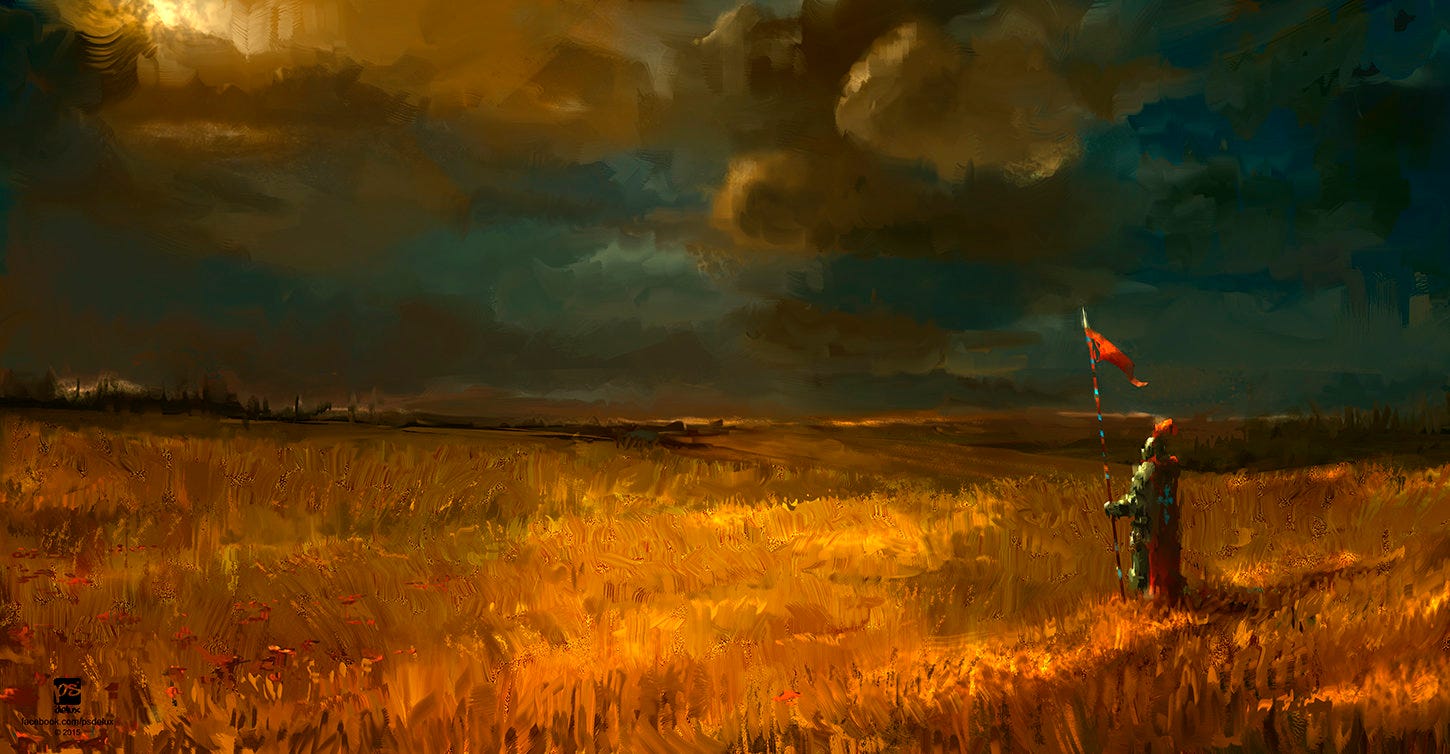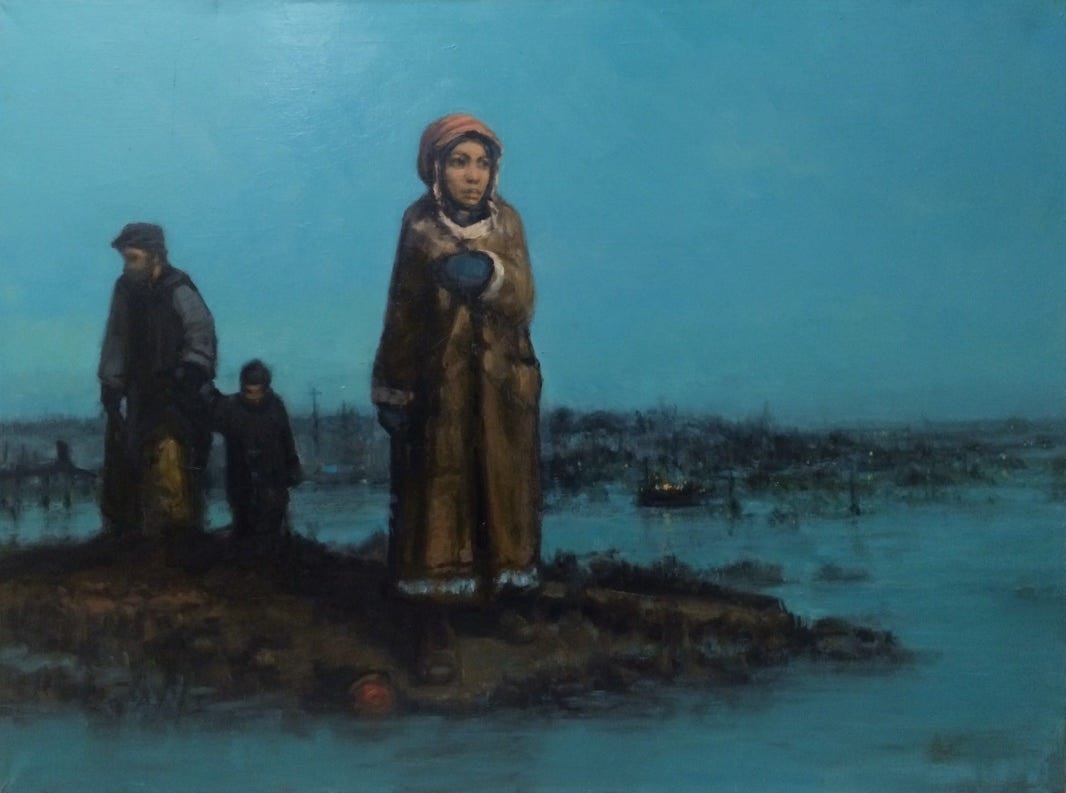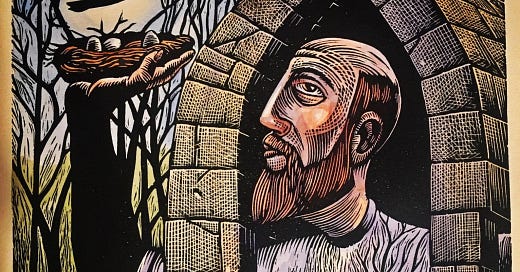

Discover more from A Stylist Submits

Finding a home for my writing is crucial to sustaining it, I’ve found.
Otherwise, it’s something I do and drag forward by myself only. Preventing that toilsome loneliness partly why I’m here on Substack, because y’all are a consistent readership who wishes to receive my work. I can’t be glad enough to write words that y’all will read every month.
Another home for my writing has been The Blotter, where I’ve been published three times. Editor Garry Sommers was one of the first to pay my poetry a compliment, all the way back in August 2019: “I must tell you that the former [poem] swept me away to my young-manhood outside Charleston, fishing with my dad. I thank you for that.”
Back in March, Garry accepted two more of my poems, and they’re now available in the June issue of The Blotter! They’re called “A Clearing in Its History” and “Rural Wake” (on pages 12-14 of the issue).
Where can you grab a copy in the Triangle area? I can’t say for certain, since The Blotter issues move in mysterious ways (like a print Aslan, you could say).
But I’ve found another magazine where I’d like to make a home for my nonfiction: Fine Books and Collections Magazine.
This print magazine covers the oddities beloved by devotees of rare books and amateur literary historians (i.e., me), and I have an article appearing in its August issue. I’ll say little of the article itself: it’s short (yes, I can write short pieces), it involves papier mâché sculptures, and due to her location I interviewed the main subject at 6 a.m. my time.
I’m more interested in saying that I’m grateful to editor Rebecca Rego Barry for accepting and editing my work, and that I plan to pitch her again.
A New Word and a Haunting Hymn
I also have a short essay for your Sunday. It begins with beautiful music that my wife (she of the perfect ear) sent me, as all things should.
This rendition of “Poor Wayfaring Stranger” is far and away the most beautiful a cappella song I’ve heard, not only for the sanctum of ethereal vocals humming around the lyrics but also for the lyrics themselves. They’re a haunted poetry—haunted by the beautiful, spectral eternity awaiting us beyond the mortal life of pain we live like exiles.
The titular “poor wayfaring stranger” wanders a “rough and steep” “world of woe,” one of “dark clouds gathered.” We know this world, this bleak existence. It has been apparent since we bungled Eden. And yet, the “golden fields” where we’ll be “free from every trial” give us hope precisely because we await them in our harrowing existence. Our joy sprouts from our despairing circumstances.
There’s an ancient term for this sprouting: “soteriology.” We find it in that great optimist, Samuel Beckett.
Andy Wimbush defines the term as “the promise to an end of suffering” in the Aeon article “The Wisdom of Surrender,” where he examines the soteriology of Beckett’s artistic vision. Christian soteriology, then, is “the peace of God, which transcends all understanding” if we borrow from Paul’s definition in Philippians,
Other religions and philosophies also seek utter peace despite the world’s travails, Wimbush writes, and so they’re soteriological in the same way Beckett’s writing is soteriological: “Beckett was drawn to the promise of spiritual release: the Latin phrases he cites [in a letter to Thomas MacGreevy] all describe a kind of transcendent peace, a peace that is found by going into suffering rather than resisting or shying away from it.”

It’s odd to think that Beckett, the snickering prophet of indifferent existential silence, sought hope at all. Much of his writing presupposes that there’s little or none to be found. But Wimbush rappels into the caverns of his prose, revealing that “[Beckett] suggests that the movement out of pain is one that flies right into it, that embraces it whole-heartedly, that resigns itself and surrenders to it. Salvation is found, oddly enough, in a place of weakness, humility and lowliness, right in the midst of suffering. This is Beckett’s mystic paradox.”
“Poor Wayfaring Stranger” takes this same lowly position, which is the vantage point that makes its heaven all the more hopeful. In its second verse, the hymn maps how rest flowers from the soil of suffering: “I know my way is rough and steep. / But golden fields lie out before me, / where God’s redeemed shall ever sleep.”
These lyrics begin in “rough” terrain and end in “golden fields,” but there’s no implied movement—for now, it’s only sight. The speaker sees the glorious rest still to come from where he exists in treacherous circumstances. His act of seeing, of knowing and imagining what he’s been promised, gifts him joy in his wandering.
This Christian soteriology overpowers the earthbound version that Beckett envisioned—he saw no eternity to welcome us, no divine glory for us to enjoy. His peace-by-suffering exists only in this life of so much bewildering pain. I find that earthbound reward meager when God offers us so much more.
And yet, Beckett’s attraction to soteriology is telling.
He cultivated an atheism that tossed both optimism and utopia, and still, humbly, he wished to see an end to suffering. We can read the iconic final lines of his novel, The Unnamable, in this light: “You must go on. I can’t go on. You must go on. I’ll go on. You must say words, as long as there are any — until they find me, until they say me…It will be I? It will be the silence where I am? I don’t know, I’ll never know: in the silence you don’t know. You must go on. I can’t go on. I’ll go on.”
To “go on” is a qualified hope for Beckett, alloyed by the certainty of uncertainty and silence. But it is a hope nonetheless. Just as the speaker of The Unnamable resolves to speak despite fearing its erasure, Beckett resolves to hope despite needing to surrender to dire circumstances.
I recognize his uncertain resolve in myself, however blessed I trust heaven will be. Our world only increases suffering; whenever you read this essay, I won’t have to name the latest evil we’re mourning. It is suffering. It often feels cruel, and it always feels incessant.
Take a moment, please, and listen again to the last verse of “Poor Wayfaring Stranger.” Let me repeat its lyrics:
I’ll soon be free from every trial, my body sleep in the churchyard. I'll drop the cross of self-denial, and enter on my great reward.
These words are the crest of the song’s soteriological beauty.
We will be lightened, and we will enter into a place we miss but have never seen. I love that this broken world sweetens my understanding of the next one, as a torturous journey through dark bogs makes the final hearth all the warmer, calmer, and kinder.

Of course, the song (and Beckett, I’d wager) draw from one of the great promises that the Apostle John records in Revelations 21. Spoken by a booming voice from the heavens, and it refers to Christ: “‘He will wipe every tear from their eyes. There will be no more death or mourning or crying or pain, for the old order of things has passed away.’”
Thanks for being here, y’all. I’ll be in touch again on June 16.
Subscribe to A Stylist Submits
Literary Christianity, with humble rigor.













Well done, and congrats on the publications!
I love the song also and your writings always, but I must confess that those last words are more hollow than they used to be. "I'll drop the cross of self-denial, and enter on my great reward." I need a world which brings meaning to every horror, not just something to endure for a time. Mary McCord Adams says the same in "Horrendous Evils and the Goodness of God" though she paints the path vaguely. I'd rather the song end with that cross becoming a crown, every jewel reflecting the sufferings endured. Much like the exalted state of Jesus whose image of glorification is a slaughtered lamb on the exalted throne of God which proves his worth and gathers all to worship(Rev 5). The cross was the path for Christ's glorification and I believe it is ours also.